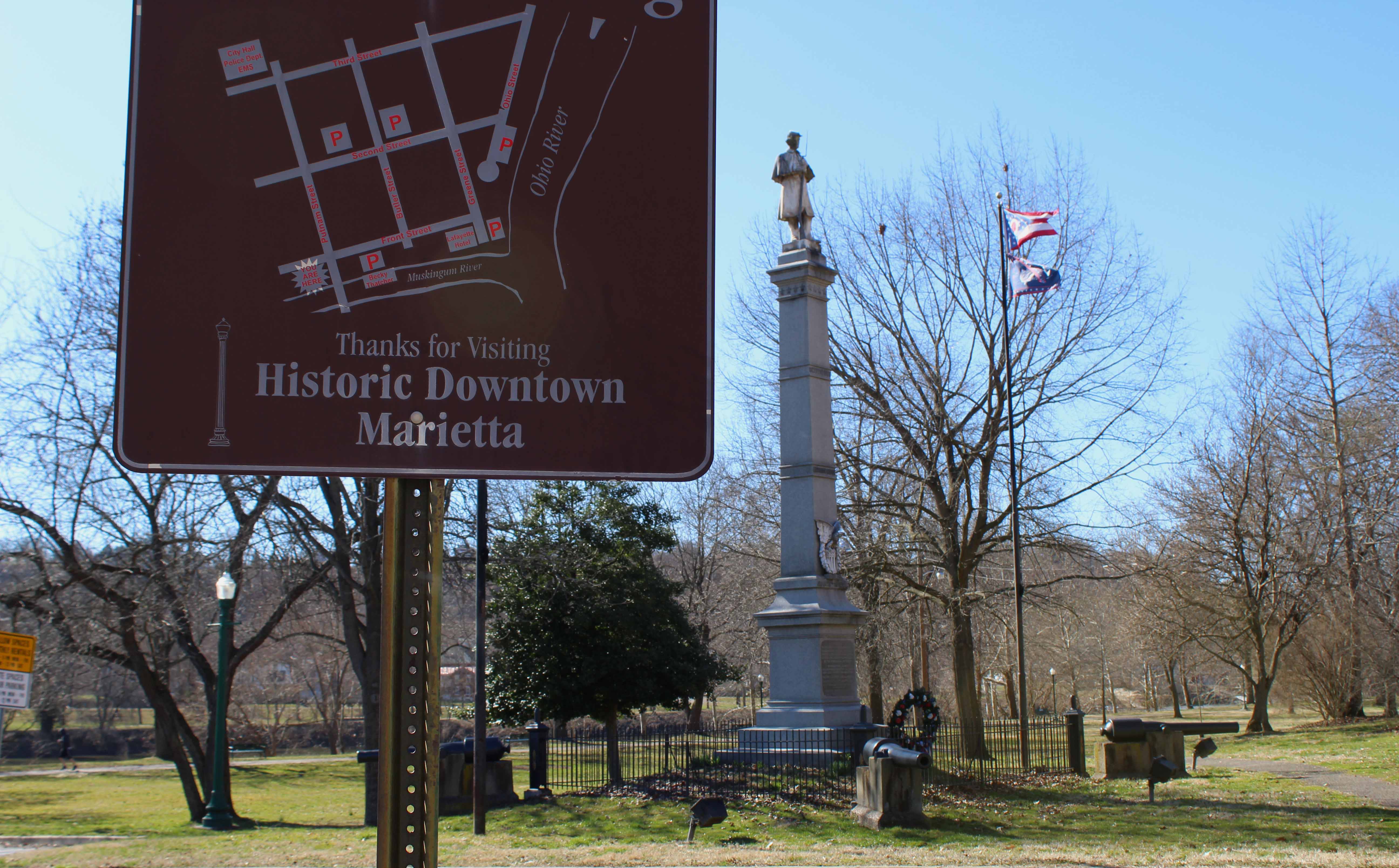Even more than two centuries after the town’s founding, local residents still try to preserve the town’s history.
At a secluded table in the local history and genealogy archives of the Marietta Public Library, an aged woman sits surrounded by stacks of tattered articles and photos.
Jane Young was born in Marietta, Ohio, but her family left the town when she was an infant. Right now, many of Young’s days have been spent researching local residents who worked for the Red Cross during World War I. Local history can help people focus on the contributions of ordinary people.
“We know how strong communities can be when they come together and work on a single purpose.”
Jane Young, psychiatric nurse
A quest to uncover more about her family’s ties to the area made Young return to the Appalachian town in 2006. That research led to a deeper interest in Marietta’s history. She stayed to volunteer on matters of historical importance.
Her current research is a continued effort for a project that began with the Castle Historic House Museum. They organized a public event showing the magnitude of World War I involvement in Marietta.
“At Grove Cemetery, we placed luminaries on the graves of people who had worked for the Red Cross and soldiers that had been in the war,” she said. “It was an incredible sight.”
As more years separate today’s society from the major events that shaped the country, it becomes more important to remember and share local history, Young and other local leaders say.
The town of Marietta has a history stretching much farther back than World War I. It was the first permanent settlement of the Northwest Territory and still has many historical sites that honor the Revolutionary War period. Local residents have taken care over the years to preserve important monuments and buildings among other markers of historical significance.
Joe Matthews, mayor of Marietta, said it’s important for people to cherish and protect local history. Funding for the restoration for the Stuart Westward Monument, in Muskingum Park, received a major boost last year with $1.1 million from the Ohio Department of Transportation. The money will also be used for smaller improvements around town, hoping to make for a more pleasant walk through the museum district.
Monuments can give snapshots of a significant moment in history, Jean Yost, head of the Stuart Westward Monument/East Muskingum Park Restoration Committee, said. The Stuart Westward Monument commemorates early pioneers and the Ordinance of 1787. He said that more people should recognize how important that ordinance was in the nation’s history, especially because it could be considered progressive. The ordinance included some parameters, such as the abolishment of slavery and proper treatment of Native Americans, that were missing in other major documents of the time.
Marietta has considerable importance in the history of the United States, Yost said, because it has seen the evolution of the country from the beginning. Residents of the town can still trace much of their ancestry back to the Revolutionary War.
“Once you understand what your forefathers stood for and you have a relationship with history, you have a better feeling of ownership in the place your family has heritage in,” he said. “You have a sense of being because of the knowledge of all the struggle your people went through.”
However, efforts to preserve local history can be more important to some people than others. Yost, a member of the Friends of the Museum Board, said the committee was created in 2009 to stop the state government from shutting down Marietta’s museums due to financial cuts. A strong business plan along with funding from the private sector and local government entities allowed the Campus Martius Museum and the Ohio River Museum to stay in business.

